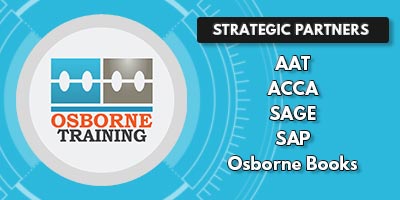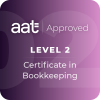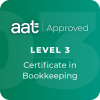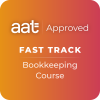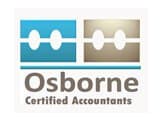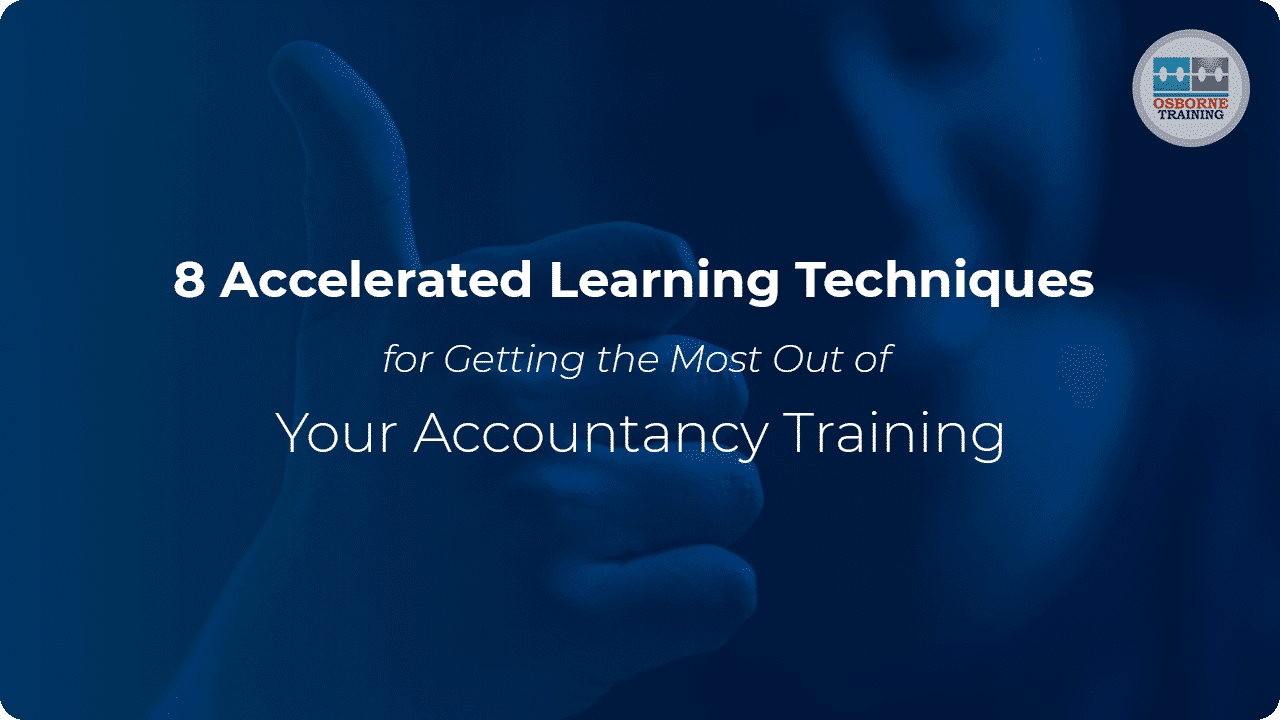
8 Accelerated Learning Techniques for Getting the Most Out of Your Accountancy Training
Accountancy is a field that demands precision, efficiency, and constant adaptation to evolving regulations and practices. To succeed in this challenging profession, aspiring accountants must not only acquire knowledge but also develop effective learning techniques.
In this blog, we will explore accelerated learning techniques tailored to accountancy training. These strategies will help you absorb complex information faster, retain it longer, and ultimately excel in your accountancy training journey.
1. Set Clear Goals

Before you start your accountancy training, define clear and specific goals. What do you want to achieve from the training?
Whether it’s passing an exam, mastering a particular skill, or becoming proficient in a specific accounting software, having a well-defined objective will provide focus and motivation for your learning journey.
2. Active Learning
Active learning involves engaging with the material actively rather than passively. Instead of just reading textbooks or watching lectures, try methods like summarizing what you’ve learned in your own words, teaching the concepts to someone else, or participating in discussions and group activities.
Active learning helps solidify your understanding and retention of information.
3. Spaced Repetition

Spaced repetition is a scientifically proven technique for long-term retention. Instead of cramming all your study sessions into one day, space them out over time.
Review and revise previously learned material at increasing time intervals. This approach strengthens your memory and helps you remember information more effectively.
4. Use Mnemonics
Mnemonics are memory aids that help you remember complex information by associating it with something simpler or more familiar.
Create acronyms, rhymes, or visual associations to remember accounting principles, formulas, or key concepts. Mnemonics can be a fun and effective way to retain information.
5. Practice with Real-world Examples
Accounting is all about real-world application. Apply what you learn to practical scenarios. Work on case studies, analyze financial statements, and solve accounting problems.
Practical experience reinforces your understanding and makes the theoretical concepts more tangible.
6. Break Information into Digestible Chunks
Chunking is the process of breaking down complex information into smaller, more manageable chunks.
Instead of trying to absorb an entire accounting textbook in one go, break it down into chapters or sections. Focus on one chunk at a time, master it, and then move on to the next. This approach prevents overwhelm and enhances comprehension.
7. Stay Organized
Effective organization is key to accelerated learning. Maintain a well-structured study schedule, create to-do lists, and use digital or physical tools like calendars and planners to
keep track of deadlines and study goals. A well-organized approach minimizes distractions and maximizes productivity.
8. Take Regular Breaks
Finally, remember that regular breaks are essential for optimal learning. The brain needs time to process and consolidate information.
Short, frequent breaks during your study sessions can help you stay focused and retain information better.
Over to you
Accelerated learning techniques can significantly enhance your accountancy training experience. By setting clear goals, actively engaging with the material, using proven strategies like spaced repetition and mnemonics, and staying organized, you can optimize your learning process.
Remember that learning is a journey, and these techniques will not only help you excel in your accountancy training but also continue to thrive in your accounting career as you encounter new challenges and opportunities.
Do you want to start your accountancy journey with an AAT-approved course? Take your first step with our Beginner-friendly AAT Level 2 course.
